Partners

Université de Montpellier (UM)
UM is a research-intensive university where education and research cover most of the Scientific and Technological fields, gathering around 41000 […]


Université de Montpellier (UM)
UM is a research-intensive university where education and research cover most of the Scientific and Technological fields, gathering around 41000 students and 4300 staffs.
In terms of innovation UM is linked to 8 Competitiveness Clusters in the Region Languedoc Roussillon. In GLOPACK, UM will joint multi-disciplinary forces from three different labs in close cooperation with official authorities at European, national and local levels, especially through RIS 3 (Research and Innovation Smart Specialisation Strategies):
IATE (the Joint Research Unit Agropolymer Engineering and Emerging Technologies), IES (South Institute of Electronic) and LIRMM (the Montpellier Laboratory of Informatics, Robotics and Microelectronics). IATE has expertise in bio-refinery & eco-friendly packaging, material shaping & characterization, mathematical modelling & integrated approaches to ensure food quality and safety, valorisation of agro-resources for the development of eco-friendly packaging & knowledge engineering. IES will bring its skills in dielectric properties of vegetal sensor and RFID application and LIRMM in informatics, computational social choice and argumentation tools.
Role in GLOPACK
In GLOPACK, UM actively participates in WP1 (database, modelling and decision support system), WP2 (material shaping), WP3 (smart packaging dimensioning, RFID based biosensor development) and WP4 (full packaging concept validation) but also in the demonstration, communication and management (WPs 5 & 6). UM is coordinating the project.
INRA as Linked third party of University of Montpellier
INRA is ranked the number one agricultural research institute in Europe and number two in the world, INRA carries out with 8290 permanent staff, mission-oriented research for competitive and sustainable agriculture, high-quality and healthy foods, and a preserved and valorized environment.
The reduction of agricultural and food wastes and losses, is the top priority of INRA strategic agenda (GloFood program). For example, in EU FUSION project, INRA has undertaken a large study to identify agro-wastes sources at the farm level and at immediate post-harvest stages.
Website of INRA: http://www.inra.fr/

Fraunhofer
FRAUNHOFER GESELLSCHAFT ZUR FOERDERUNG DER ANGEWANDTEN FORSCHUNG E.V. (Fraunhofer) The Fraunhofer-Gesellschaft is the leading organization for applied research in Europe. […]


Fraunhofer
FRAUNHOFER GESELLSCHAFT ZUR FOERDERUNG DER ANGEWANDTEN FORSCHUNG E.V. (Fraunhofer)
The Fraunhofer-Gesellschaft is the leading organization for applied research in Europe. Its research activities are conducted by 67 institutes and research units at locations throughout Germany. The Fraunhofer-Gesellschaft employs a staff of 24,000, who work with an annual research budget totaling more than 2.1 billion euros. The Fraunhofer Institute for Process Engineering and Packaging IVV develops products and processes primarily in the area of food ingredients, food development, functional materials, product safety, food quality, biogenic raw materials as well as plastics recycling. Concerning biogenic raw materials Fraunhofer IVV has many years of experience in using modified starches and plant proteins for not food applications like barrier coatings. The department “Material developments” has over 20 years of experience in extrusion, lacquering, laminating and vacuum coating of flexible polymer films and in developing multilayer structures thereof with high barrier properties. Furthermore, Fraunhofer IVV is working on novel packaging with active functionalities like incorporated oxygen scavengers or antimicrobials. The department “Product safety and analysis” performs analytical testing and evaluation of food contact materials with respect to their interactive processes and compliance with food regulation. Finally, Fraunhofer IVV has a longstanding expertise in testing and evaluating food packaging safety issues and is equipped with the latest state of the art analytical facilities.
Role in GLOPACK
Fraunhofer is leader of WP2 and also intensive involved in WP 3 and 4. Fraunhofer activities will mainly covering the work of material processing, packaging implementation and characterisation within the project
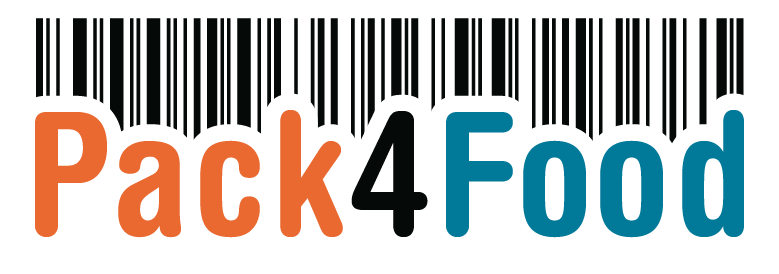
Pack4Food (Pack4Food)
Pack4Food is a collaboration platform between industrial stakeholders in food packaging and research institutes with broad expertise in food packaging. […]


Pack4Food (Pack4Food)
Pack4Food is a collaboration platform between industrial stakeholders in food packaging and research institutes with broad expertise in food packaging. It was founded in 2005 and is based in Flanders (Belgium). Since 2011, Pack4Food has become independent as a non-profit organization. Pack4Food is coordinating different research projects in Flanders concerning optimal barrier capacities for food packaging, intelligent packaging, bio based materials, etc. Pack4Food aims at translating scientific research results towards the industry. Therefore, it organizes on regular basis intensive trainings for companies, it gives bilateral advises to companies on food packaging innovations, it supports companies with the implementation of the scientific results within their production environment and it publishes regularly scientific or industrial papers.
Role in GLOPACK
Pack4Food is leader of WP 4 and will also be involved in WP 2 and WP5. The Pack4Food activities will be mainly focussing 1) on the implementation of the newly developed packaging concept within the participating companies, 2) on the coordination of shelf-life testing of food products and 3) on defining, in close collaboration with the industrial partners and the research institutes, the requirements for the bio-based trays to be used for food packaging.

Campden BRI Magyarország Nonprofit Kft. (CBHU)
Campden BRI Magyarorszag Nonprofit Kft. (CBHU) is an independent industrial, non-profit research and development organization providing R+D, knowledge transfer and […]


Campden BRI Magyarország Nonprofit Kft. (CBHU)
Campden BRI Magyarorszag Nonprofit Kft. (CBHU) is an independent industrial, non-profit research and development organization providing R+D, knowledge transfer and training services to a large number of food businesses in Eastern and Central Europe.
It has long international experiences in several branches of the food sector R+D, in product and process development, knowledge transfer particularly in working with SMEs, food safety management, traceability, consumer and sensory science, in market insight services, in chilled and modified atmosphere packaging technology of minimally processed fruits and vegetables, assessment of safe shelf-life of MAP and vacuum-packed chilled products in supply chain management, utilisation of food and agricultural waste.
Participation in food industry R+I networks such as R&I Expert Group FoodDrinkEurope (chair), European Collaboration of the National Food Technology Platforms (NFTPs Vice-chair,), Hungarian NFTP (scientific coordinator). CBHU has direct relationships with food processing companies, other food chain members, networks, food manufacturing federations, trade associations and food clusters. Member of the European Sensory Network (ESN). Contributes to the SPES (Spread European Safety) consortium.
Role in GLOPACK
In WP1 CBHU will participate in measurements to understand consumer behaviour and habits and in the identification of the B2B market constraints and will contribute to the expert Models Platform and to database and indicators’ calculation.
In WP4 CBHU will contribute to the design of the shelf-life tests and provide the methodology for food safety assessment of the stored samples and for sensorial studies. CBHU will contribute to the evaluation of food losses reduction.
In WP5 CBHU Task leader of establishment of strategy for dissemination, knowledge transfer and diffusion of GLOPACK’s results. CBHU is the Task leader of setting up and operating a Stakeholders’ Platform. CBHU is the task leader of developing communication strategy and tools specially targeted to end-users. CBHU will contribute to the review and analysis of the market and existing business concepts and to the identification of feasible business opportunities and new marketing strategies.

Creme Global
Creme Software LTD (CREME GLOBAL) Creme Global was established in 2005 and is a public limited company registered in the […]


Creme Global
Creme Software LTD (CREME GLOBAL)
Creme Global was established in 2005 and is a public limited company registered in the jurisdiction of the Republic of Ireland. With over eleven years’ experience developing data software solutions in the area of predictive intake modelling, we have built many software solutions which gather, process and present large data sets to our customers. These data sets have been managed, installed and validated in our regulatory accepted and employed models and services.
Our expertise lie in database design and management, building user and machine interfaces, system operations, cloud hosting and mathematical modelling. As well as our domain expertise. Core to the solutions and services we provide are the data we manage, analyse and present to our customers and collaborators. These data, when combined with data from external bodies are the basis to run complex analysis and mathematical models to provide insight and value from the data of external bodies. Our data solutions have involved developing APIs and modern user interfaces, capable of handling the big data our customers and collaborators use without slowdowns or downtime, such as the CARES NG or Expert Models platforms. We provide support and maintenance for these products. Organisational Structure: Creme Global’s technical skills are wide ranging spanning software development, database management, data analytics & statistics, solutions architecture, IT management, Quality Assurance, UI/UX design, Nutrition, Food Safety and Food Packaging.
Role in GLOPACK
Within GLOPACK specifically, Creme Global will be responsible for the coordination of WP1 and the associated deliverables of the decision support system. It will also contribute towards WP3 where it will conduct exposure assessments of an antimicrobial entity to be used in packaging matrices.

FURST-PLAST
FURST-PLAST is a SME founded in November 2009 in Fourques (France), and is a subsidiary of Furst Group. Furst-Plast is […]


FURST-PLAST
FURST-PLAST is a SME founded in November 2009 in Fourques (France), and is a subsidiary of Furst Group. Furst-Plast is specialized in producing injection molding trays, containers and lids made of polypropylene for the food processing industry in France. Furst-plast is a professional partner regarding innovative, foodsafe packaging made of polyopropylene for the food industry. The company has 32 employees, including one dedicated to the manufacture of 28 people structure. Production is carried on 7D / 7D – 24 hours on and 24 hours throughout the year. Furst-plast produce plastic packaging by injection molding, and also with IML (In Mold Labeling), and have 2 packaging families:
1 – Transparent Drums and Lids for the confectionary
2 – Food plate for catering
Furst-plast customer demographics are Food processing industry, focused confectionery / Reseller / Retail sale / End-consumer. Furst-plast containers made of polypropylene with tamper-evident seal are available in different shapes (round, square, rectangular or in different special shapes) and in nearly every colour, with the following pros:100% food-safe / Customer assurance with tamper-proof seal / Eco-friendly since only one raw material is used / Reusable, resealable / Dishwasher safe / Microwave safe / Freezer safe / Odorless
Role in GLOPACK
In GLOPACK Project, FURST-PLAST will be responsible for checking the suitability of industrialization with the process of transformation of plastic injection developed materials.

Soredab SAS
SOREDAB is the central research lab of SAVENCIA Group. The Group is an independent family group, operating mainly in Cheese […]


Soredab SAS
SOREDAB is the central research lab of SAVENCIA Group. The Group is an independent family group, operating mainly in Cheese and Dairy products and also in Chocolate and Delicatessen businesses. It develops and sells high quality products and services for Retail, Food service or Industry customers. SOREDAB develops scientific and technical know-how that can be used by the companies of SAVENCIA Group and provides a major contribution to the renewing and improvement of industrial processes, and to the acceleration of innovation processes. SOREDAB employs a staff of around 100 people. Their main research fields are Biotechnology, Food sciences, Food safety, Nutrition, Process and Packaging.
Role in GLOPACK
SOREDAB is mainly involved in WP4. SOREDAB will validate the efficiency of the full eco-packaging concept in terms of food shelf life increase on one dairy product (fresh or hard cheese).

InnovEn
InnovEn is an academic spin off company born from the experience gained in years of applied research by professors Franco […]


InnovEn
InnovEn is an academic spin off company born from the experience gained in years of applied research by professors Franco Cecchi, David Bolzonella and Francesco Fatone, all working at the Department of Biotechnology of the University of Verona. Main expertise of the team are in the fields of anaerobic fermentation and digestion of municipal/industrial/agricultural organic waste for organic molecules production (lactic acid, volatile fatty acids….), biofuels (hydrogen, methane) and nutrients recovery from municipal/industrial wastewaters treatment. The team in InnovEn, also because of its academic origin, has a long experience in EU funded projects in the frameworks of Horizon2020 and FP7 as well as in LIFE ENVIRONEMNT and Intelligent Energy Europe (IEE).
Role in GLOPACK
InnovEn will be mainly involved in WP2 and in particular in the management of a demo scale platform for the production of PHA from agro-waste. In particular, InnovEn will be leader of Task 2.1 about large scale production of raw components: PHA synthesis and fractionation of fibre-based fractions from agro-food waste and by-products as well as responsible for deliverable D2.1.

Instituto de Biologia Experimental e Tecnologica
Instituto de Biologia Experimental e Tecnologica (IBET) iBET is an SME created to integrate biological and biochemical knowledge from academic […]


Instituto de Biologia Experimental e Tecnologica
Instituto de Biologia Experimental e Tecnologica (IBET)
iBET is an SME created to integrate biological and biochemical knowledge from academic and industrial partners into technology for economic wealth and job creation. The SME iBET is a private non-profit research intensive institution with the mission to integrate and strengthen biological and biochemical knowledge from its academic and industrial partners into technology and transfer it into economic wealth and job creation. iBET brings together, as partners and collaborators, private companies and public institutions, creating a critical mass of competencies for product and process development. iBET comprises 16 laboratories and owns an adjacent bio pilot plant, in which companies have access to fermentation and downstream processing skills and equipment. iBET has coordinated over 20 international projects and has participated as work-package leader in more than 40 projects supported by the EC.
The iBET team has significant expertise in research in bioengineering, wastewater treatment, nutrient removal, microbiology and modelling, including the use of mixed microbial based processes for biopolymer production (e.g. polyhydroxyalkanoates – PHA) and resource recovery from residues. Furthermore this team has an extensive experience in training and supervision of higher education fellows (Masters, PhD and Post- Doc)..
Role in GLOPACK
Taking into account their experience, iBET will be involved in WP2 and more specifically on Task 2.1 Large scale production of raw components: PHA synthesis and fractionation of fibre-based fractions from agrofood waste and by-products.

Symetris
SYMETRIS is a French independent market research company that provides advice to its clients on the impact of marketing on […]


Symetris
SYMETRIS is a French independent market research company that provides advice to its clients on the impact of marketing on consumer behaviours. It offers a variety of services based both on quantitative and qualitative market research, such as Online Surveys, telephone and face-to-face Interviews and Focus Groups.
Role in GLOPACK
SYMETRIS is involved in WP 1, 4, 5 and 6. SYMETRIS will contribute to identifying market constraints and consumer acceptance by conducting qualitative and quantitative market research across Europe.
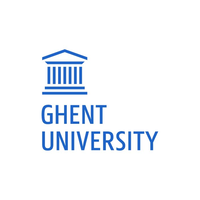
University of Ghent – Research group EnVOC
University of Ghent – Research group EnVOC (UGent) Ghent University is a top 100 university founded in 1817 and is […]


University of Ghent – Research group EnVOC
University of Ghent – Research group EnVOC (UGent)
Ghent University is a top 100 university founded in 1817 and is one of the major universities in Belgium.
EnVOC (Environmental Organic Chemistry and Technology) is a research group from the faculty of Bioscience Engineering. EnVOC focuses on three sub-disciplines: environmental analysis (analysis of the behaviour and fate of organic micro-pollutants), environmental technology (development of technologies to abate organic chemical pollution) and clean technology.
The EnVOC team focuses mainly on environmental sustainability of cleaner technologies. To complete the outputs obtained from classical life cycle assessment (LCA) which mainly focuses on the reduction of impact of emissions, the EnVOC team puts emphasis on the resource intake pattern and on the overall efficiency of the production and consumption chain through exergy analysis (EA) and Exergetic Life Cycle Analysis (ELCA).
EnVOC analyses the environmental sustainability of emerging technologies (e.g., algae-based technologies) as well as well established technologies for which improvements are investigated. The replacement of fossil-based technologies by bio-based technologies to produce energy or materials is one of the focuses of the department.
Moreover, EnVOC is developing an expertise on raw materials management (e.g., metals and minerals) and on approaches to better account for their use in sustainability assessment studies. Aspects that are investigated are raw materials criticality and metals reuse and recycling.
Role in GLOPACK
UGent is involved in WP1, 2, 3 and 4. UGent will be in charge of collecting data and evaluating the process efficiency in WP 2 and 3 and to conduct the life cycle analysis of the three packaging solutions in WP4. The results will be used as a basis for the implementation of sustainability indicators in the DSS (WP1).
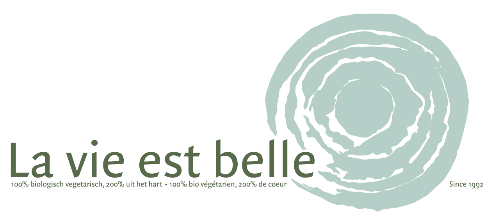
La vie est belle
La vie est belle (LVEB) is an independent Belgian producer of organic vegetarian products such as burgers, spreads and salads. […]


La vie est belle
La vie est belle (LVEB) is an independent Belgian producer of organic vegetarian products such as burgers, spreads and salads. Since 1992 it is producing high quality products that are made available through retail and food services. The main focus of the company is to produce rich, organic products in a sincere and dedicated way. Because LVEB doesn’t use any additives to preserve the product, high quality packaging serves an important role in product conservation.
Role in GLOPACK
La vie est belle mainly participates in WP 4, by testing the packaging prototypes in real life scenarios.
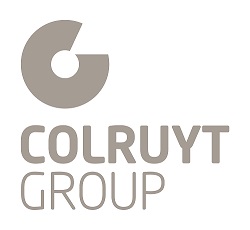
Colruyt Group- Fine Food Meat
Colruyt Group- Fine Food Meat Colruyt, a family company from Belgium, first appeared about 80 years ago. Today, they have […]


Colruyt Group- Fine Food Meat
Colruyt Group- Fine Food Meat
Colruyt, a family company from Belgium, first appeared about 80 years ago. Today, they have grown from a small company into a whole family of companies: Colruyt Group. They offer numerous retail chains, own brands and activities, and they are flourishing in three countries (Belgium, France and Luxembourg).
Colruyt Group is most famous for their food retailing, but they are also active in non-food and fuel, wholesale and foodservice. They have different retail formulas in food, such as Colruyt Lowest Prices, OKay, Spar Colruyt Group, Bio-Planet, Collect&Go, Cru and Solucious.
Colruyt keeps the production of some food products to a large extent in their own hands and bundled these production activities (meat, cheese, coffee, wine, bread) under one name: Colruyt Group Fine Food. Fine Food Meat is becoming one of the largest meat and charcuterie producers in Belgium, almost 1.000 employees work here. They process all the pork, beef and chicken meat for the butcheries at Colruyt shops, from carcass to final product. Within Fine Food Meat, there is a lot of equipment available on which tests can be performed, with the support of qualified people. A group of engineers is available to support all the performance tests, they have great knowledge about the production capacity, the production efficiency and the processes throughout the whole factory. A team of ten people is responsible for the maintenance of quality of every single step in the production process. Every day, they are evaluating the quality of the raw materials as well as the final products. They also have great experience in evaluating shelf life, in cooperation with external laboratories. Fine Food Meat and Colruyt Group work closely together to provide the consumers with high quality products.
The large marketing department of Colruyt Group supports the different retail formulas and other businesses with their specific knowledge on consumer insights. They are an added value for the Glopack project as they are specialized in all matters related to customers. Colruyt Group has also created several R&D&I (Research & Development & Innovation) teams, spread over the different operating units of the Group.
Role in GLOPACK
Fine Food Meat is involved in the testing of the innovative packaging with meat (WP4).
The marketing department of Colruyt Group will support the final test in the Glopack project (market replication of WP4), to select customers, provide them with the right information and to capture their feedback on the packaging (together with Symetris).
The team of R&D&I (Research & Development & Innovation) Food of Colruyt Group will coordinate the Glopack project for Colruyt Group, and will use its competence to collect all stakeholders inside Colruyt.

Ecozept Gbr (ECOZ)
Ecozept is a German-French based, private market research and marketing consulting agency that is engaged, since its foundation in 2000, […]


Ecozept Gbr (ECOZ)
Ecozept is a German-French based, private market research and marketing consulting agency that is engaged, since its foundation in 2000, in the matter of sustainable agro-food markets. A main weight lies on the research and development of market intelligence systems and marketing approaches for the agro-food business (organic products, regional products, typical products, etc.).
During implementation of its projects, Ecozept is attaching much importance to practice related and effective ways. In processes, we seek a direct and close contact to our partners. We create confidence through transparency, openness and on-the-spot support.
Ecozept is part of an active network of similar agencies, governmental institutions, the agro-food industry (foremost SME) and extension services in Germany and France, but as well in other European countries. Out of the team of a dozen agriculture, environmental and marketing experts, eight are working at the headquarter in Freising (Germany) while four persons are based in the French office in Montpellier.
Our marketing consulting designs marketing concepts on strategic and operational level. Here, we work with individual enterprises as well as with clusters, groups and business networks. Supply chain management is one of our main tasks in this domain: we make people, ideas and products match and we organize the cooperation from farm to fork, by innovative and sustainable approaches.

Coopbox
COOPBOX GROUP S.p.A is an Italian company leader in the plastic packaging production, with application in fresh and ultra-fresh food […]


Coopbox
COOPBOX GROUP S.p.A is an Italian company leader in the plastic packaging production, with application in fresh and ultra-fresh food market. Considering meat and fish sectors, COOPBOX is the second most important company on the European panorama while it may be considered as the first one in South European regions.
COOPBOX was founded in Bibbiano (Reggio Emilia, Italy) in 1972 and now has different plants located in different South European countries: two in Italy (Bibbiano and Ferrandina), one in the Slovak republic (Nove Mesto nad Vahom) and a logistic site in France (Auneau).
The COOPBOX R&D group, however, is centralized and located in the headquarter of Bibbiano.
Thermoformed trays are the main COOPBOX products and they may be divided into two big categories: foamed polystyrene trays and rigid PET trays. For both, the production process starts from an extrusion step, that permits to obtain an intermediate product such as polystyrene or rigid foils. The foil then goes through a thermoforming step, where, as the same word says, the desired tray is formed. COOPBOX processes about 25.000 tons of polymers each year, mainly PS (15.000 tons) and PET (9.000 tons).
The R&D department consists in an analysis-lab, where physical and rheological tests on plastic materials may be performed, a pilot foam extruder (110 Kg/h), with direct gas injection technology and the chance to process different polymers, and a confectionary lab with climatic chamber, in order to reproduce packaging conditions of final customers.
Role in GLOPACK
In the GLOPACK project, COOPBOX covers the WP3 leader role, with the aim of supervising the development of a PHA-based active and intelligent food packaging.
In particular COOPBOX works in order to:
- define technology/market specifications for the active and intelligent materials (T3.1),
- carry out preliminary validation test of the RFID biosensor in controlled atmosphere conditions (T3.2)
- perform production scale-up, testing and tuning of thermo-formed active packaging (T3.3)
COOPBOX contributes also to: stakeholders’ needs mapping (T1.1), production of biodegradable trays (T2.2), evaluation and control of packaging functional properties (T2.3), validation of the RFID based bio-sensor (T4.2), comparative shelf life study, providing benchmark packaging (T4.3), scientific and quality management (WP6).
In addition, COOPBOX participates in project dissemination and exploitation activities aimed to industry clients and customers, using European and national food packaging exhibitions as ideal stages to engage the audience (WP5).
University of Modena and Reggio Emilia as Linked third party of Coopbox
The University of Modena and Reggio Emilia (UniMoRe) operates in a broad academic context carrying out training, research and technology transfer activities in the two poles of Modena and Reggio Emilia. Among the scientific fields covered by the Department of Life Sciences (DSV), the agri-food sector, holds strategic importance, proved by the ability to attract resources and by the many active collaboration with food companies. UniMoRe-DSV has expertise in the study of chemical, physical, nutritional and sensory properties and in the microbiological analysis of foods. Particular expertise represented within the Department concerns the study of the shelf life of products, the optimization of packaging systems aimed at extending shelf life and improving sustainability.

Tageos
Tageos designs, manufactures and sells 100% paper-based passive UHF RFID labels for item-level tagging needs of various industries such as […]


Tageos
Tageos designs, manufactures and sells 100% paper-based passive UHF RFID labels for item-level tagging needs of various industries such as retail apparel, luxury, jewellery, healthcare, wine and alcohols or logistics. Tageos was born in 2006 from the will of its founders to address the RFID market with a technology breakthrough in order to lower the price of RFID tags – the consumable part of the RFID value chain – and drive RFID adoption at a larger scale.
Tageos developed a superior tag manufacturing process that squeezes cost out of established RFID label manufacturing processes, significantly reducing RFID tag cost and allowing its customers to save up to thousands or millions of euros annually on their RFID labeling budgets. Aspects of company’s exclusive label design and manufacturing process are globally patented. Tageos’ process simplifies RFID labels’ structure and reduce their cost. Where competitors depend on a process in which chip and antenna are first integrated onto a plastic inlay and then converted into a printable label, Tageos relies on a cheaper process where chip and antenna are assembled directly on a printable paper roll. The result is a simpler manufacturing process and raw material savings. Tageos labels’ cost is intrinsically reduced to provide a major competitive advantage in a very price sensitive volume-based market. Tageos offers an extensive range of passive UHF RFID labels of various sizes and formats to conveniently fulfil its customers’ tagging needs. Tageos tags are ready to use as adhesive paper labels, hang tags or sewn in labels. Tageos has a key competitive advantage on price, the labels are 20% to 30% lower cost RFID label depending on the targeted market, to provide up to millions of euros in annual savings – for example for a major clothing retail chain. Tageos label is also the only “green” RFID label on the market, made with 50% less glue, no plastic, and rejecting 90% less CO2 than traditional tags.
Role in GLOPACK
TAGEOS is involved in WP 3 and 4. Tageos will work on the antenna design adapted to the integration of a passive sensor, as well as on the manufacturing process in large volume. TAGEOS work on validation of the large-scale produced Sensor-RFID in controlled conditions mimicking storage of food products as of applicability on packaging material, signal reading, etc. The variation of dielectric properties of the Sensor- RFID due to CO2 changes in internal atmosphere (increase/decrease in concentration) will be transformed in a signal indicating clearly the freshness of the food (for instance, colour scales between, green = OK and red = do not eat anymore) that can be easily understood by both industries/retailers and consumers. Impact of the nature of the lid film to be used in shelf life test (WP4) on the sensor answer will be studied at this stage. The biosensor pre-validation phase includes different settings of CO2 levels to mimic modified atmosphere encountered for each targeted food (e.g. red meat or poultry meat are packed in two different atmospheres), based on Task 3.1 results. The validation will be assessed using sealing machines for MAP with different gas mixing (N2, CO2, O2).



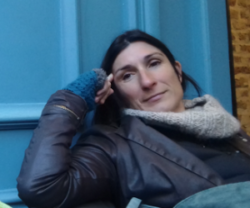
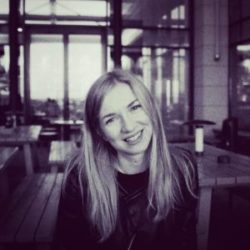


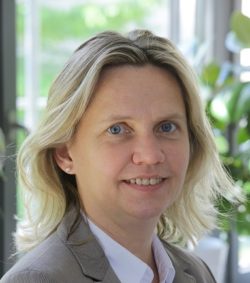




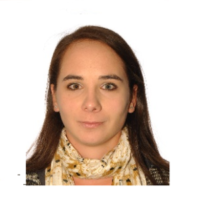



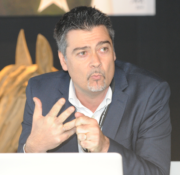
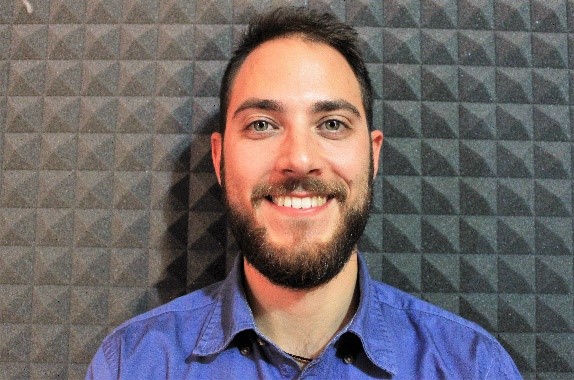







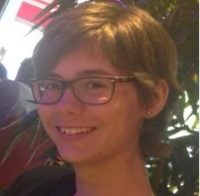
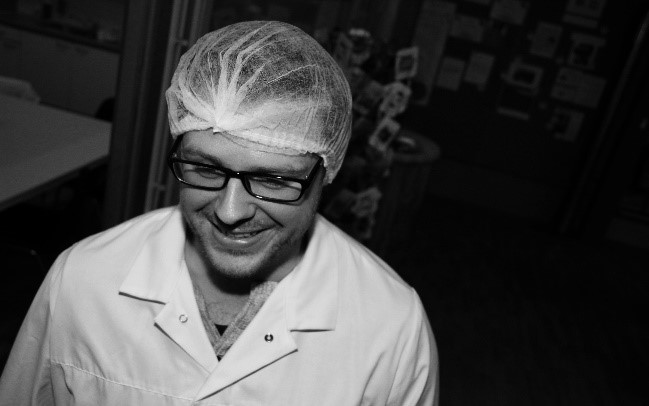
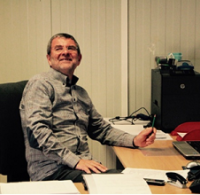



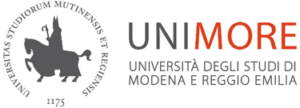
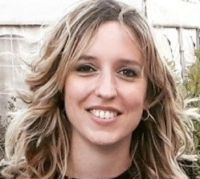

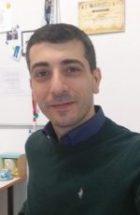



GLOPACK on social media